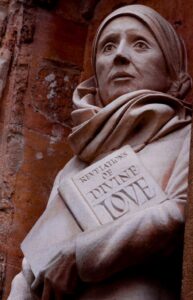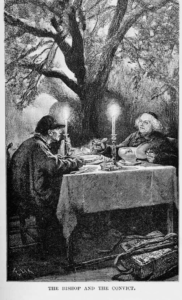The portrait painted yesterday at the January 6 hearing by Cassidy Hutchinson, a top aide to former White House Chief of Staff Mark Meadows, wasn’t simply of a criminal president, but of a seditious madman.
Even Republican members of Congress who have long supported Donald Trump told reporters, anonymously, that Hutchinson’s testimony was “worse than they imagined.” They were “stunned” and “left speechless.”
If they were, they shouldn’t have been.
According to Hutchinson, the president of the United States knew that his supporters attending the January 6 rally near the White House were armed—and he still wanted security removed from the area and the crowd to march to the Capitol. “I overheard the president say something to the effect of ‘I don’t f-ing care that they have weapons. They’re not here to hurt me. Take the f-ing mags [magnetometers] away. Let my people in. They can march to the Capitol from here,’” Hutchinson said. Not long after that, Trump told the crowd that stormed the Capitol, “If you don’t fight like hell, you’re not going to have a country anymore.”
Hutchinson also said she heard a conversation between White House Counsel Pat Cipollone and Meadows: “I remember Pat saying something to the effect of ‘Mark, we need to do something more. They’re literally calling for the vice president to be f-ing hung.’ And Mark had responded something to the effect of ‘You heard him, Pat; he thinks Mike deserves it. He doesn’t think they’re doing anything wrong.’” Shortly after that, Trump tweeted, “Mike Pence didn’t have the courage to do what should have been done to protect our country and our Constitution.”
Hutchinson also said that Trump shattered a porcelain plate after learning that then–Attorney General Bill Barr said he’d found no evidence of widespread voter fraud in the 2020 election; on other occasions, Trump flipped tablecloths “to let all the contents at the table go onto the floor and likely break or go everywhere.” And at the end of the hearing, Representative Liz Cheney raised the prospect of witness tampering, quoting from witnesses who had been the targets of Mafia-style intimidation tactics.
This new account of what Trump did leading up to, on, and after January 6 was shocking, yet not surprising. His behavior did not amount to an abrupt about-face by an otherwise honorable man, but was the last link in an almost unfathomably long chain of events—vicious, merciless words and unscrupulous, unethical acts that were said and done, many in public view, in ways that were impossible to deny. All of the signs of Trump’s corruption and disordered personality were obvious for years.
Perhaps the case against Trump presented by the January 6 committee and previous Trump loyalists—by now so overwhelming as to be unquestionable—will cause some members of Congress, academics, and “public intellectuals” in the right-wing infrastructure to distance themselves from Trump. Of course, until now Trump has crossed no ethical line, has shattered no norm that caused them to say “Enough!” Instead we’ve heard whataboutism and strained-to-the-breaking-point excuses.
However this plays out, this needs to be said: For the past half-dozen years, the Republican Party and the American right—with a very few honorable exceptions— stood with Trump, defended him, and attacked his critics. Some went silent in the face of his indecency and lawlessness; many others gleefully promulgated his lies and conspiracy theories. Together they attempted to annihilate truth on his behalf, in his name, for their party, to seize and to hold power.
Some comfort themselves by saying that they went along for the ride so they could promote their policy agenda. Others were afraid to speak up. Still others did it for ratings and money. Some Trump supporters were true believers. Some rationalized their deal with the (figurative) devil; others were more transparent and more cynical.
Every Trump supporter has his story to tell, his defense to offer, his reasons why he did what he did. Massive cognitive dissonance—in this case individuals and a political party that have historically championed law and order, “traditional values,” high ethical ideals, moral leadership in political leaders, and a healthy civic and political culture defending at every turn a person who was indecent, cruel, vindictive, demagogic, unstable, and ultimately deranged—can produce some very creative justifications.
No matter; the die is cast when it comes to the Trump presidency and those who made it possible. The events of January 6 were, in their own twisted way, a fitting denouement for the Trump presidency. It was so obvious, for so long, that this wouldn’t end well. Trump was the primary architect of the attack on the citadel of American democracy. But he had a lot of help along the way.
Hutchinson’s testimony was a withering indictment of America’s 45th president. But it was also, if less directly, an indictment of his party, his supporters, his acolytes, those who went silent and those who spoke up on his behalf. He and they are ever twinned.
Peter Wehner is a contributing writer at The Atlantic and a senior fellow at the Trinity Forum. He writes widely on political, cultural, religious, and national-security issues, and he is the author of The Death of Politics: How to Heal Our Frayed Republic After Trump.
This article was originally published in The Atlantic on June 29, 2022.
Photo via Pexels.


